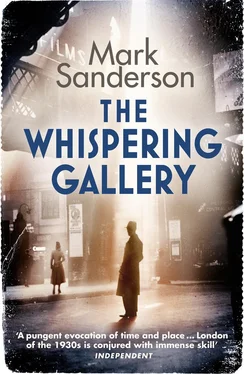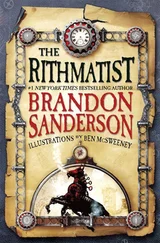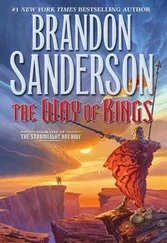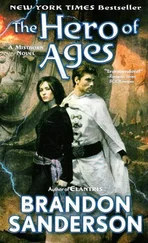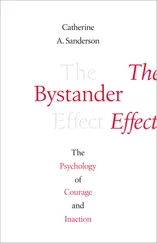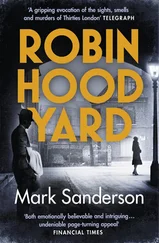Chapter One Chapter One Chapter Two Chapter Three Chapter Four Chapter Five Chapter Six Chapter Seven Chapter Eight Chapter Nine Chapter Ten Part Two - Dark House Lane Chapter Eleven Chapter Twelve Chapter Thirteen Chapter Fourteen Chapter Fifteen Chapter Sixteen Chapter Seventeen Chapter Eighteen Chapter Nineteen Chapter Twenty Part Three - Sans Walk Chapter Twenty-One Chapter Twenty-Two Chapter Twenty-Three Chapter Twenty-Four Chapter Twenty-Five Chapter Twenty-Six Chapter Twenty-Seven Chapter Twenty-Eight Chapter Twenty-Nine Chapter Thirty Bibliography About the Author By the same author Copyright About the Publisher Конец ознакомительного фрагмента. Текст предоставлен ООО «ЛитРес». Прочитайте эту книгу целиком, купив полную легальную версию на ЛитРес. Безопасно оплатить книгу можно банковской картой Visa, MasterCard, Maestro, со счета мобильного телефона, с платежного терминала, в салоне МТС или Связной, через PayPal, WebMoney, Яндекс.Деньги, QIWI Кошелек, бонусными картами или другим удобным Вам способом.
Saturday, 3rd July 1937, 2.30 p.m.
He was going to take the plunge. It had been almost eight months now and he loved her more than any other girl in the world.
Even though the remorseless sun came slanting through the clear glass, it was cool in the vast interior of St Paul’s. Johnny, impatient as ever, strolled down the nave, dodged gawping tourists, and took a seat beneath the magnificent dome which, thanks to the exhibition in St Dunstan’s Chapel, he had already learned was actually three in one: the outer dome of fluted lead and stone that could be seen from all over London; a brick spire that held up the lantern at the very top of the cathedral; and, sixty feet below the outer one, an internal dome decorated with scenes from the life of St Paul in grisaille and gold. Biblical history had never been one of his strong suits – or interests – at school, but Johnny recognised the shipwreck on Malta, the conversion of the gaoler and the Ephesians burning books – just like the Nazis today. Nothing changed.
What little remained of his faith had been buried along with his mother after her early, excruciating, death from cancer. However, he was not in St Paul’s to pray but to propose marriage to Stella, the green-eyed, glossy-haired temptress he had met in The Cock, her father’s pub in Smithfield, back in December. They had been seeing more and more of each other since Christmas – and Johnny had been falling deeper and deeper in love. Although she still sometimes helped out behind the bar, Stella was now a fully qualified secretary who worked at C. Hoare & Co., a private bank in Fleet Street – which just happened to be a minute’s walk away from the Daily News where Johnny was a crime reporter.
Johnny checked that his mother’s engagement ring was still safely tucked in the inside pocket of his jacket – his father had died in the battle of Passchendaele when Johnny was three – and looked up to the Whispering Gallery where he intended to make his proposal. The acoustics were such that words whispered behind a hand travelled round the wall of the dome and into any ear pressed against the stone. There were only four people up there at present. One of them, a beanpole of a man, gaunt and unshaven, stood directly above the keystone of an arch decorated with a cherub behind a pair of crossed swords. He leaned over the ornate railings and watched those milling around a hundred feet below.
Johnny got to his feet. He was beginning to feel really nervous now. Stella wasn’t due for at least another ten minutes and she always made a point of being eight minutes late: “It makes you all the happier to see me.” She didn’t seem to understand that this was impossible.
“She can only say no,” said Matt, his oldest friend, in characteristically blunt fashion when Johnny had told him of his plans over several pints of Truman’s the night before. “But she’d be a fool if she did.”
Blunt, perhaps, but unswervingly loyal. Passing his sergeant’s exams had given Matt more than promotion in the ranks of the City of London Police; it had boosted his self-confidence – not that Johnny thought he needed any help in that department. Self-doubt was his own speciality.
He ambled through the quire – why the earlier spelling of choir was insisted upon was anybody’s guess – gazed at the dazzling blue and gold mosaics above him, passed the organ that would be bellowing out Old Hundredth the following morning, and turned right to face the windows where the unruly sun came streaming in. The funerary effigy of John Donne, the metaphysical poet who became Dean of St Paul’s in 1621, was now on his left. It was supernaturally realistic: every whisker of his beard, every crease of his shroud, stood out.
Johnny preferred prose to verse but he could still recall a few of the lines that Old Moggy had made them study, beating the rhythm with his wooden leg – supposedly made of mahogany, hence the teacher’s nickname. This, for example, from “The Anagram”:
Love built on beauty, soon as beauty, dies.
Stella would always be beautiful to him: even when she was sixty. Every time her almond eyes met his own his heart flipped. It seemed to liquefy and flood his body with euphoria. At such moments he felt he could do anything – and there was certainly nothing he wouldn’t do for her. The attraction wasn’t just physical – although he existed in a state of constant desire for her. He had never before made love to the same woman over such an extended period of time. His past was littered with a succession of brief but intense flings with actresses and dancers who had hoped he could help their careers by persuading colleagues to mention them in print. It still amazed him that sex with Stella got better and better, that the novelty did not wear off. She was his new-found land that he would never tire of exploring.
And yet he was equally happy simply doing nothing. It was enough just to be in her company. When they were together he felt complete. They made a handsome couple. They were the same height – five foot six; Johnny was accustomed to being looked down on – and shared other characteristics besides their startlingly green eyes: both were quick witted, with a fiery temper and a deep sense of fair play. However, Stella would not hesitate to knock him off his high horse when he was raging against social injustice.
It was not that she was in favour of inequality: she just couldn’t stand intellectual soppiness. Johnny had a tendency to get dewy-eyed about the plight of the underdog. Then again, he had seen a lot more than she had: more reality, more poverty and more death. Her protective father, a lumbering bear of a man who had no difficulty handling awkward customers, had done his best to shield her from the worst aspects of life in the capital. His possessiveness had ensured that they had yet to spend a whole night together. Johnny was not looking forward to asking him for permission to marry his daughter – if she said “yes”.
He hoped she wouldn’t make too much of a fuss about the 259 steps up to the gallery: a notice warned those wishing to ascend towards heaven that there were no stopping-off points on the way. It wasn’t as if he had chosen the Stone Gallery (378 steps) or even the Golden Gallery (530 steps).
On their second date they had climbed to the top of the Monument, the tallest isolated stone column in the world. Designed by Christopher Wren to commemor ate the Great Fire of London, which had started in Pudding Lane 202 feet away, it was consequently 202 feet high and contained 311 steps. When they had finally reached the iron cage at the top – built to prevent suicides – Johnny, checking no one was looking, had kissed her full, red lips and murmured, heart still pounding from the ascent: “You take my breath away.” Their laughter had hung between them in the frosty air.
Читать дальше
